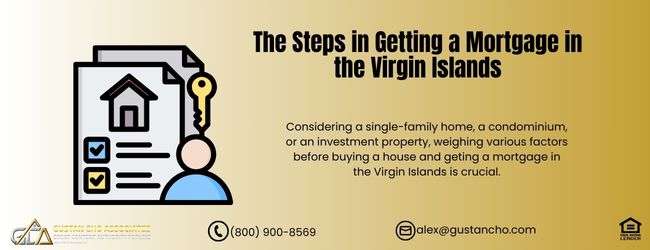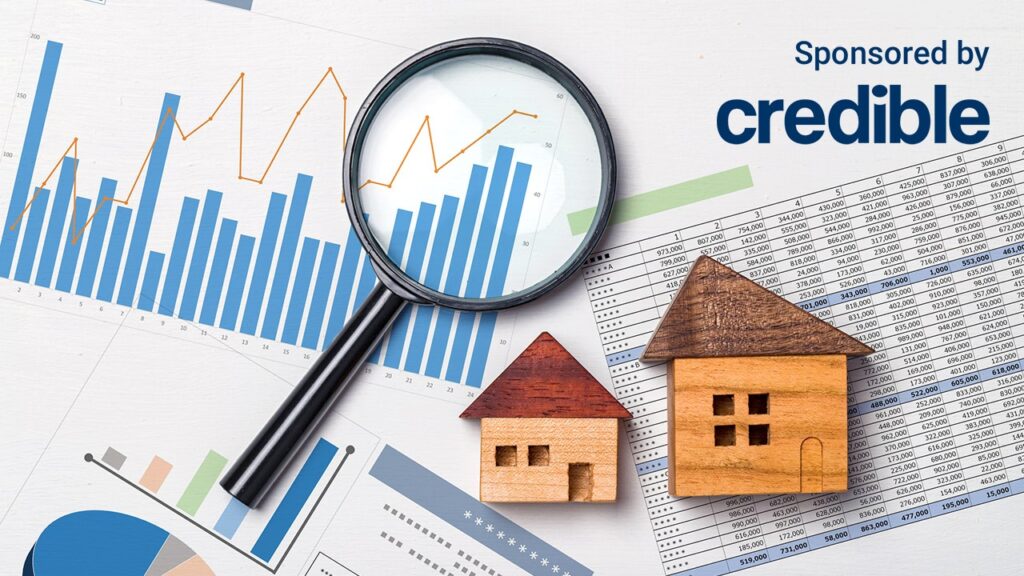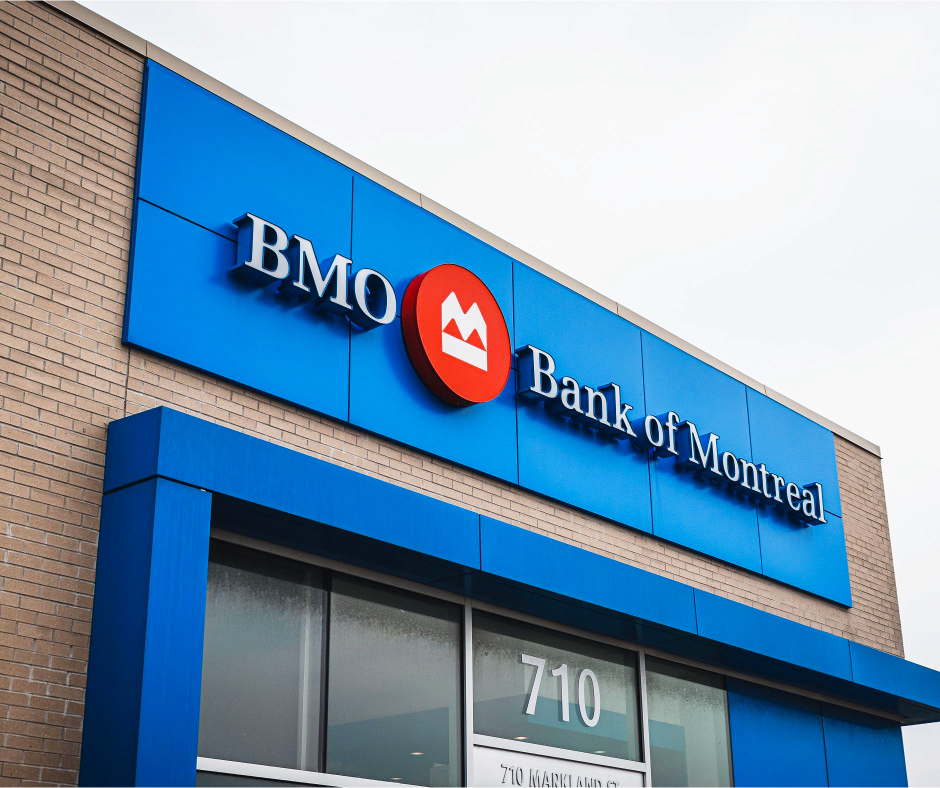Understanding the Homebuying and Mortgage Process

This guide covers understanding the homebuying and mortgage process. Buying a home to live in is one of the most meaningful investments a person can make in their lifetime. For most people, purchasing a home involves taking out a mortgage or home loan. Marga Jurilla, the National Operations Manager at GCA FORUMS shares the following about the mortgage loan process:
The homebuying and mortgage process can be overwhelming. Especially for first-time homebuyers. This comprehensive guide will demystify the mortgage process and explain how to obtain a mortgage to finance your home.
There is no reason why any borrower should have stress during the mortgage process. Purchasing a home is a significant financial commitment for many people. It is one of the most important investments they will make. As a result, it is crucial to understand the homebuying and mortgage process to ensure that you are making informed decisions. Purchasing a home is a significant financial responsibility for most people. In the following paragraphs, we will cover the homebuying and mortgage process.
First-Time Homebuyers: How Can I Become a Homeowner
You do not need a large down payment, great credit, and high credit scores to buy a house. The key is to get qualified and pre-approved. Outstanding collection accounts and charge-offs do not have to be paid to qualify for a mortgage. Once qualified and pre-approved for a home loan mortgage, you can start looking for your dream home. Homebuyers with a prior bankruptcy and foreclosure are eligible for a mortgage. You do not need to pay outstanding collections and charge-off accounts.
Once you understand the homebuying and mortgage process, you will understand you can qualify and get pre-approved for a home loan with bad credit. The key is to have timely payments in the past 12 months to be eligible to qualify for a mortgage.
Working with and choosing an experienced real estate agent who understands your needs and the local market is essential. Once you are pre-approved by a loan officer and find a home you’re interested in, you’ll will be able to make an offer and negotiate with the seller. If the request is accepted, you’ll move on to giving the executed offer to your loan officer and begin the mortgage process. Your real estate agent will work closely with your loan officer during the homebuying and mortgage process. The finish line is closing on the home on time without stress or a last-minute mortgage loan denial. We will highlight the steps below and look further into the various steps of the homebuying and mortgage in the article. Speak With Our Loan Officer for Mortgage Loans
What is a Mortgage?
A mortgage is a loan to finance residential or commercial real estate. The lender provides funds to the borrower to buy or refinance the property. The borrower agrees to repay the loan over a set period with interest. Residential mortgage loans are amortized over 15 to 30 years. A mortgage can range from 15 to 30 years, depending on the borrower’s preference and the lender’s terms. Commercial loans can be a balloon, adjustable rate mortgages, or fixed-rate mortgages amortized over 5 to 30 years. Once you have determined the type of property you want to buy, your budget, you then need to choose a lender. You can work with a mortgage broker or a direct lender. A mortgage broker works with multiple wholesale lenders to help you find the best mortgage rate and terms. A direct lender only offers their own in-house mortgage products.
The Start of the Homebuying and Mortgage Process
The first step in the homebuying and mortgage process is determining how much you can afford. Your income, credit score, credit history, assets, liabilities, and other financial obligations will be taken into consideration and determine your ability to repay. It is essential to be realistic about your budget and not overextend yourself. Lauren Wright of The Wright Realtor Realty, a prominent Chicago-based real estate agent and an associate contributing editor at GCA FORUMS advises the following:
The homebuying and mortgage process has several stages. Obtaining a mortgage can seem daunting, but it can be a smooth process with the correct information and guidance.
Start by getting pre-approved for a mortgage and work with a reputable lender who can guide you through the process and help you make informed decisions about the type of mortgage that best fits your needs. Remember, a mortgage is a long-term commitment, so take the time to understand the process and choose the right loan. After you submit your mortgage application, the lender will conduct an underwriting process to evaluate your creditworthiness.
The Pre-Approval Process of The Homebuying and Mortgage Process
Getting qualified and pre-approved is the first step of the homebuying and mortgage process. A solid pre-approval for a mortgage is essential before searching for a home. Pre-approval means that a lender has reviewed your credit, income, assets, and liabilities and determined that you are eligible for a specific loan amount. Once pre-approved, you can look for homes within your budget. John Strange , a senior loan officer with GCA Mortgage Group explains the homebuying and mortgage process as follows:
The lender will look at your credit score, employment history, and debt-to-income ratio to decide whether you’re a good candidate for the loan. If everything checks out, you’ll receive a mortgage commitment, often referred as a pre-approval letter.
Before looking for a home, you should get pre-approved for a mortgage. Getting pre-approved involves submitting a mortgage application and documenting your income, assets, and debts. The loan officer will thoroughly go over your credit and income and qualify the mortgage applicant is pre-approved and has the ability to repay the new home purchase. Pre-approval helps determine how much you can afford and strengthens your offer when you find a home you want to buy. Get Pre-Approval for Homebuying and Mortgage Process
The Importance of The Pre-Approval Letter
After you’ve found a home you like, you’ll need to complete a mortgage application. Alex Carlucci of GCA FORUMS explains the number one reason for last-minute mortgage loan denials as follows:
The qualification and pre-approval stage is the most important stage of the homebuying and mortgage process. The number one reason for a last-minute mortgage denial is due to the loan officer issuing a pre-approval when the borrower was not qualified.
The application will require detailed information about your income, assets, credit, and debts. The lender will review your application and verify your employment, income, and credit history. The lender will also order an appraisal to ensure the home’s value sufficiently covers the loan. If the lender approves your application, they will issue a formal mortgage commitment letter. With a iron-clad solid pre-approval letter, you can now start looking for homes.
Steps of the Mortgage Loan Process
Once you find a home you want to purchase, your real estate agent will negotiate the purchase price. With the executed real estate purchase contract, the mortgage process begins. A mortgage processor is assigned to your purchase. The file then goes to underwriting. Once the underwriter sees you meet all the requirements for the home loan, you will be issued a conditional loan approval. The file goes back to the mortgage processor where the processor gathers all conditions for the mortgage underwriter. Once the conditions are satisfied, the underwriter issues a clear to close. A clear to close, or CTC, is a loan commitment where the lender is ready to fund the loan. The final step is the closing at the title company. The home closing is where you will sign all the necessary paperwork, pay closing costs, and the lender will fund the loan. Ownership is exchanged and you get the keys to your new home purchase.
How Much House Can You Afford vs. Qualify
Before you start looking at homes, you need to determine your budget. The budget involves calculating your monthly expenses, including housing costs, and figuring out how much you can afford to spend on a mortgage payment each month. There are many different types of loan programs: FHA, VA, USDA, Conventional, Jumbo, and Non-QM loans. A jumbo loan is a loan that exceeds the standard loan limits set by Fannie Mae and Freddie Mac. It would be best to consider your down payment and closing costs when determining your budget. Your lender can help you determine your budget. Various types of mortgages are available, each with its pros and cons. In this section, we will cover the common types of mortgages:
Fixed-rate Versus Adjustable Rate Mortgages
Go over what type of loan term is best for you. ARMs can have lower rates. Adjustable rate mortgages can have a low rate period, but when rates can adjust to a higher rate when the initial rate period ends. Adjustable rate mortgages can benefit first-time homebuyers buying a starter home. ARMs have a lower start rate for a certain period of time but can adjust when rates adjusts. A fixed-rate mortgage has a fixed interest rate and monthly payment for the life of the loan. An ARM has a variable interest rate that changes periodically based on market conditions.
Government Vs. Conforming Loans
There are two types of traditional loans: Government-backed loans and conforming loans. The three government-backed loans are FHA, VA, and USDA loans. Conventional loans are often referred to as conforming loans because they need to conform to Fannie Mae and Freddie Mac guidelines. Conforming loans are not backed by any government agency. Dale Elenteny of GCA FORUMS explains government versus conforming loans::
Government-backed loans are for owner-occupant borrowers only. You cannot finance a second home or investment property with a government-backed loan. You can finance second and investment homes with conventional and non-QM loans.
An FHA loan is a government-backed loan with more lenient credit and down payment requirements. Borrowers with credit scores down to 500 are eligible for FHA loans. VA loans are for veterans and active-duty military members with no down payment requirement. USDA loans do not require a down payment but have an income cap. USDA loans are only eligible only designated rural by USDA Rural Development.
Non-Conforming Loans
Non-QM and jumbo loans are non-conforming loans. There are no particular guidelines on non-conforming loans. Mortgage guidelines on non-conforming and non-QM loans are set by the individual mortgage lender. Hard money and non-QM loans offer investment property financing with no required income docs. GCA FORUMS has a national reputation for being a one-stop mortgage shop. Business, commercial, hard money, private money and alternative loans is offered through Lending Network, LLC. GCA Forums has a lending partnership with Lending Network, LLC. Lending Network, LLC is the nation’s premier and fastest-growing lender for commercial loans. We highly suggest you check Lending Network, LLC for every loan program available today. Speak With Our Loan Officer for Non-Conforming Loans
How Long Is The Homebuying and Mortgage Process
The overall timeline of the homebuying and mortgage process is 30 days from the date the borrower gets the loan estimate disclosed. The final step in the homebuying and mortgage process is closing your loan. Closing is where you sign all the paperwork and finalize the loan. You must bring a cashier’s check for the down payment and closing costs.
The mortgage process should not be stressful. Mortgage loans should not take longer than 30 days unless there are special circumstances. As long as borrowers fully cooperate with the mortgage process in getting documents required promptly, the mortgage process should be smooth and close on time.
The lender will review your financial information to ensure everything has stayed the same since your pre-approval. You will usually close at a title company or an attorney’s office, where you sign all the necessary paperwork and officially take ownership of your new home. Closing costs typically include fees for the lender, appraisal, title search, and other expenses associated with the purchase.
Do All Lenders Have the Same Lending Requirements?
If you should decide to buy, before you begin looking for a home and during the process, we have vast experience working with buyers to get them ready to purchase their dream home. We can take you through the entire financing process for your home loan. We also can connect you to title companies/attorneys and real estate agents in your area that can help as needed.
GCA FORUMS, powered by Gustan Cho Associates are mortgage lenders licensed in 48 states, including Washington, DC, Puerto Rico, and the U.S. Virgin Islands.
Over 80% of our borrowers are folks who could not qualify at other mortgage companies due to it lender overlays, or because the lender did not have the loan program best suited for them. The team at GCA FORUMS has successfully guided many homeowners through obtaining a home on both the lending and real estate side. GCA FORUMS represent buyers or sellers but offers free consultation in 48 states at GCA Mortgage Group by connecting homeowners, buyers, and sellers to the needed sources.
FAQs of the Homebuying and Mortgage Process
This section will cover the Frequently Asked Questions (FAQs) by our viewers and clients at GCA FORUMS and Gustan Cho Associates on the homebuying and mortgage process. We will be presenting the most common inquiry that first home buyers make concerning comprehension of the homebuying and mortgage transaction processes:
Where does one start when wanting to buy a house?
- The first step usually involves looking at finances. By looking at finances, it involves reviewing creditworthiness, estimating purchasing power, and arranging a down payment.
- It is also advisable to determine what type of home loan program a homebuyer qualifies for, get pre-approval, and check one’s budget.
What is a typical figure for the down payment when buying a house?
- The down payment has different amounts for different loan types and even with different lenders.
- In most cases, 3%- 20% of the home price may be required from you for its purchase.
- There are loan programs such as the VA or the USDA where no down payment may be required.
What does pre-approved for a mortgage mean? Is it needed?
- A mortgage pre-approval means a lender recognizing you qualify for a certain mortgage amount.
- A pre-approval is very important as it assures the seller that the buyer is serious and has the finances to buy the house.
Are there any mortgage types that first-time buyers may avail themselves of in a home?
- Conventional, FHA, VA, and USDA loans are common mortgage types.
- Each has different criteria regarding eligibility, deposit amount, and advantages.
- Non-QM loans are non-qualified mortgages.
What factors do you consider when selecting a suitable mortgage lender?
- There are different lenders with varying interest rates, fees, loan products as well as asking customer service.
- Reviews and reference suggestions from friends and relatives are also useful.
What is the distinction between a fixed-rate mortgage and an ARM?
- A fixed-rate mortgage offers an interest rate and constant monthly payments throughout the loan duration.
- An adjustable-rate mortgage (ARM) allows the interest rate to fluctuate periodically, usually after a fixed period.
- Your mortgage payment will typically include the amount factored into the principal and interest on the loan, property taxes, homeowner’s insurance, and possible mortgage insurance.
- This is often called PITI (Principal, Interest, Taxes, and Insurance).
What is private mortgage insurance (PMI), and when is it required?
- PMI is a type of insurance that protects lenders when a borrower defaults or has not paid up a loan.
- It is typically demanded when the percentage of the borrowing is more than what the buyer has put against that house in that specific bank.
- The PMI can be canceled once you gain sufficient equity in the house.
What are closing costs, and how much should I expect to pay?
- These are fees incurred for providing a loan and consequent relocation or change of ownership.
- Usually, they range between two and five percent of the house’s sales price and cover appraisal, title policy, attorney, and other related expenses.
How long does the homebuying and mortgage process take?
- The entire homebuying and mortgage process can take weeks to a couple of months.
- It all depends on the dynamics of the market, the approvals of the loans, and how fast one can find a home.
What should I look for during a home inspection?
- In-home inspections look for problems related to the building structure and framing, plumbing, electrical, heating systems, roofing, foundation, and many other aspects of the house.
- They show how good the house is and how much will be needed for repairs.
Is it possible to bargain for a house?
- Indeed, the home price is usually subject to negotiation, depending on how long the home was listed for sale or the inspection results.
- Real estate agents can help with the negotiation process.
What is the next step once my offer is accepted?
- Once your offer is accepted, you will proceed with the mortgage application, schedule a home inspection and appraisal, and make final preparations for settlement, where the transfer of title occurs.
What is an escrow account, and do I manage it?
- A lender creates an escrow account to pay property tax and homeowner insurance on the customer’s behalf.
- The escrow account assures that the scheduled payables are met and that the payments are collected as part of the mortgage.
What is a title search, and why is it needed?
- A title search confirms that the seller has the legal capacity to sell the property and that it is free of encumbrances.
- This ensures that you will not have any legal problems after the acquisition.
Closing and Settlement Arrangements: What must I bring along when the closing is held?
- Normally, one should show their government ID.
- Bring a cashier’s check or wiring details for those costs to the closing.
- Provide proof of homeowner’s insurance.
- Provide other papers that are needed internally to either the financing company or title company.
What is the difference between pre-qualification and pre-approval when getting a mortgage?
- Pre-qualification can be described as approximating the capabilities of the borrower.
- Pre-approval is the amount a lender is prepared to provide after performing digest checks on the finances and making the conditional lending agreement.
How can one tell the affordability of a house when buying one?
- Generally, up to 50% on non-QM and conventional loans.
- 46.9% front-end and 56.9% back-end on FHA loans.
- 29% front-end and 41% back-end on USDA loans.
- VA loans do not have a maximum debt-to-income ratio cap as long as the borrower has sufficient residual income.
- Closing costs include origination costs, credit reporting fees, pre-paid, appraisal fees, title charges, transfer stamps, homeowners insurance, attorney’s fees, and any other costs and fees related to the homebuying and mortgage process.
- The calculations should also consider other types of debt and expenditures to ensure reasonable repayment levels.
Changes affecting the mortgage approval processes. What are some of the changes that may affect my homebuying and mortgage process when buying the house?
- Alterations may include the inability to procure a mortgage.
- For instance, due to the consumer score index, where the score reduces.
- Taking on new debt can also prove difficult when securing a mortgage approval.
In the event of a lower appraisal than the agreed purchase price, how do the agents proceed?
- If the appraisal is lower than the purchase price.
- You should contact the seller and renegotiate the deal.
- Find additional money for closing.
- Or walk away from the whole deal as long as your contract permits.
These frequently asked questions assist first-time buyers in sifting through the complications of the homebuying and mortgage process, helping them make well-informed choices. Speak With Our Loan Officer for Mortgage Loans







Responses